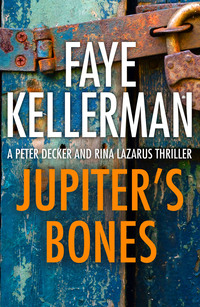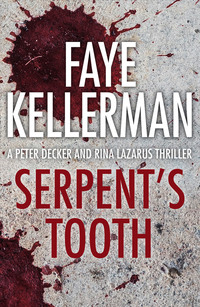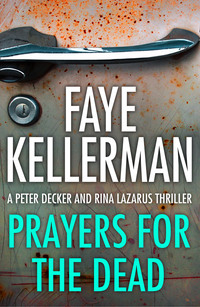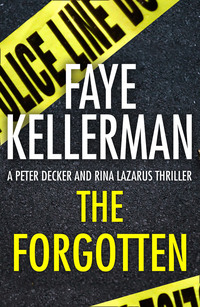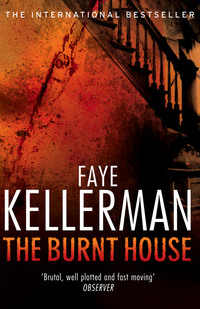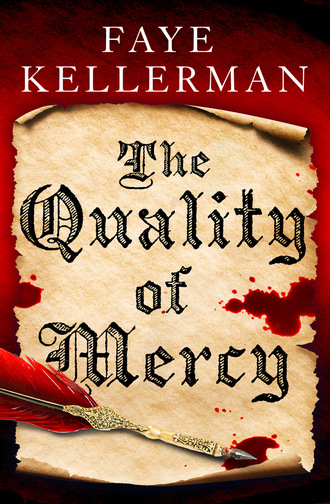
Полная версия
The Quality of Mercy
“I thought you said four.”
“Four days then. Yes, it was four days. On the fourth night, when Harry became involved with a group of rogues—unscrupulous men—his luck suddenly changed.”
Shakespeare felt suddenly ired, frustrated. “He became someone’s coney—a dupe.”
Chambers nodded.
“You didn’t stop the rogues from cheating?”
Chambers said, “In my business one never interferes with gentlemen dicing. They become most resentful.”
Shakespeare asked him to continue.
“The stakes grew higher,” Chambers said. His eyes darted from side to side. “I know not exactly what happened, sir. It was said that Harry’s luck took a sudden turn for the better. Then it was discovered that Harry held in his pockets several pairs of false dice.”
Shakespeare cursed inwardly. Uncover things best left buried. He said, “Harry was many things—a philanderer and a carouser—but always an honest man.”
“Then it grieves me to tell you this, goodman, but in his possession were a flat carter-treys, a flat cinque-deuces, a barred carter-treys, and high fullam.”
“High fullam?”
“Dice weighed toward high numbers.”
“I don’t believe it,” Shakespeare said. “He was duped.”
“I was not there when the accusations were made, sir.”
“Where were you?” Shakespeare asked.
“I have a brother,” Chambers said. “He was in charge of the inn’s business that evening.”
“May I speak with him?” Shakespeare asked.
“He’s in Kent, sir.”
“Had you ever seen Harry dice on any previous visit here?” Shakespeare asked.
“Yes sir, I have.”
“You have?”
“Yes.” Chambers began to shake his left leg.
Shakespeare told him to complete the dreadful tale.
Chambers said, “The next morning I saw Harry paying off these men with big coins—angels, nobles, sovereigns.”
Where had Harry come to so much money? Shakespeare wondered. He asked, “The name of these rogues?”
“I divulge their identities only because you say he was a kindred spirit with your soul.”
“I speak honestly.”
“I only know two names. The leader—a vicious uprightman who’s quick with the sword—and his doxy.”
“His name?”
“Have respect for my soul. Do not breathe the name I’m about to utter.”
“On my honor.”
“And be careful for your hide,” Chambers warned. “He’s ruthless and evil.”
“I shall be wary,” Shakespeare said. “Pray, his name?”
“Mackering—George Mackering.”
Shakespeare groaned.
“You know him?” asked Chambers, frightened.
“By reputation only,” Shakespeare answered. “An atheist—a foul, cunning man. And deadly with a sword.”
Chambers swallowed back a dry heave.
Shakespeare said, “His woman is still Mary Biddle?”
Chambers nodded.
“Are they still here?” Shakespeare asked.
“No.”
“Back in London?”
“It seems likely. London is Mackering’s favorite place of operation.” Chambers paused, then said, “Pray, leave now.”
Shakespeare stood up and placed a shilling atop the table. Chambers snatched it up, bit it, and placed it in his purse before Shakespeare was out the door.
Chapter 8
All was not well with Roderigo Lopez. Raphael’s death had been a black cloud, a storm that had left no one in the family untouched. Rebecca was once again a single woman, and Miguel’s peculiarities were keeping her that way for the moment.
But now Lopez was preoccupied with a single thought—it had been nearly a month since he’d been called to court. Though it could not be proven, he knew in his heart that the Queen was deliberately shunning his counsel, her avoidance no doubt fueled by evil words from the damnable Essex. Royal blood ran thick through the earl’s veins—another stubborn redhead with a fiery temperament.
Roderigo spewed out curses as he paced, his heavy bootsteps stomping through the straw and echoing against the stone pavers. Normally the East Cell of his home was his favorite place of refuge—a closet where he could work or relax unmolested. Warmed by the fires burning in an exceptionally large hearth, Roderigo often sat at his desk in his favorite chair, admiring his pewter inkstand or unfolding and studying his recently charted maps. Once a week he counted his assets on his calculating board. The chamber was his retreat from the outside world. But this afternoon its magical spell of tranquility had been broken by the presence of his nephews—Thomas and Dunstan—and Miguel Nuñoz, sitting around his personal writing table.
May we meet, they had asked. Details of the mission must be discussed at length … And other things.
He knew what they meant by other things, what they dared not say in public. He had lost favor with the Queen. Only a temporary condition, he assured himself as he marched to and fro. Essex’s doing today would be his undoing in the future. He’d see to that! And to think that he had once trusted the bloodlusting dog.
He had to reach the Queen. But how? As of late Her Grace had no need of his services. The woman was in perfect health, sound in both body and mind—as strong as a bull and as crafty as a witch.
“A pox on him,” Roderigo swore out loud once again. “Curse Essex and everything he holds dear.”
“Do cool your choler, Uncle,” Dunstan said, playing with his diamond earring. Good heavens, the old man was full of spleen tonight. “It does us no good if you mutter and strut.”
Roderigo cursed again, but this time the heat of his words was directed against his nephew. “Show respect to your elder, you arrogant little maggot.” He slapped Dunstan soundly across the face with the back of his hand.
Stung more by the insult than by injury, Dunstan stammered out words of apology. With an unsteady hand he removed a red silk kerchief from his doublet and wiped a bead of sweat off his forehead, his eyes beseeching his brother for help.
“Do sit, Uncle,” Thomas urged. Reflexively, he rubbed his naked chin, and thought angrily of his smooth skin. Why had he been hexed—to exist without manly fur? Why him and not Dunstan? He was star-crossed, pulled too early from the womb under the wrong configuration of planets. He glanced at Roderigo, who hadn’t appeared to hear him. “Pray, do not tire yourself unnecessarily, Uncle. Better to save your energy for more noble a purpose.”
Roderigo considered the suggestion, and upon deciding it to be a good one, sat down in his favorite oak armchair. Sarah had sewn the pillow used for a backrest—a portrait of Deborah, the blind prophetess, holding the scales of justice. He tilted his head backward and regarded the fresco painted upon the ceiling—Samson breaking down the pillars of the Philistine temple, curly hair cascading down to his loincloth, eye sockets vacant and white. On the walls hung tapestry panels that told the story of David and Bathsheba. When he stared straight ahead, he saw three pairs of anxious eyes. Roderigo longed to look at something that didn’t look back at him. Grumpily, he rang for Martino, his blackamoor servant.
“Where is your father?” Roderigo asked Dunstan.
“His trade took him down to Dover,” Dunstan answered quietly. “A new shipment of anise.”
Martino entered the closet and Roderigo barked out an order for superior port. After the servant departed, Lopez’s eyes rested upon Miguel, almost daring him to speak. The young man pushed a ringlet of black hair off his forehead and squirmed under the scrutiny, crossing and recrossing his legs, unsure of how to proceed. Miguel knew he had disappointed Roderigo immensely, but what could he have done differently? Would it have been better to say nothing? Miguel had told Rebecca about his vices years ago. Now, at last, Roderigo knew the truth as well.
After much deliberation, when it had been verified that Raphael indeed had perished, he’d confessed his preferences in the art of love to Dunstan and Thomas, suspecting that they had known about his practices all the while. He’d asked them to deliver the news to their uncle, thus sparing him the initial pain and embarrassment. He held so much admiration and love for the doctor, a man who had treated him as kindly as his own son, Benjamin. And Sarah was the mother he had never known. Though the families were distant relations, they had always been inseparable.
But Roderigo, sorely impatient with anything that upset his plans, had been furious with him—as if Miguel had failed him out of spite. Much as Miguel tried, he couldn’t seem to make Roderigo understand: that he loved Rebecca dearly as a sister, that his own welfare was secondary to hers. Rebecca deserved more than he could hope to give her. God knew he had tried to explain it, but the doctor hadn’t seemed any more consoled. Such contempt in his eyes as he spoke:
Surely you can tolerate her as a diversion. At least you can hold your nose long enough, until there is a legitimate heir.
Miguel held his own flaring temper and said nothing. Roderigo continued,
Out of my sight, you fop, you woman! Play with your boys until it falls off and rots, for all I care.
Miguel had stalked away, angry and guilty. He cursed God for afflicting him with so wretched a perversion made so sweet by his lovers’ arms. If only Raphael hadn’t died!
But then there came his reprieve. The mission. The family men had approached him. Would he volunteer to continue his brother’s efforts?
Miguel had offered to work for the mission many times, but the suggestion always had been met with hesitancy by his father and Raphael. Aye, Raphi had loved him, always tried to protect him against the evil forces that be. And in the end it was Raphi, not he, who’d been murdered by Satan’s agents.
After Raphael’s death, Miguel was determined to go on with his brother’s work. He was thinking about how to approach the other men when they came to him. Would he continue where Raphael had left off? By God, he would, he’d replied. It would be an honor! If God were with him, he would save lives, revenge his brother’s death and earn back the doctor’s respect. Despite the mounting adversity—the Earl of Essex’s hatred of Roderigo, the rise in popularity of the lord and his War Party—the secret Jews decided they must carry on.
“The Queen,” Miguel began. “Her Grace has yet to send for you, Ruy.”
Roderigo continued to stare at him. The tip of his beard was tightly wound around his fool’s finger and was turning it purple. Slowly he liberated the finger and clenched his hands into fists. “No,” he whispered tensely. “Essex has seen to that. Only war with Spain will satisfy his insatiable love of blood.”
“A pity the Queen was inflicted with smallpox so long ago,” Dunstan said. “More so a pity that the illness seems only to strike once in a life.”
“Dunstan!” Miguel said.
“Harsh, but true,” Dunstan retorted. “Surely she couldn’t avoid Uncle if she were gravely ill.”
Roderigo glared at his nephew. “You repulsive worm!” He raised his hand, then seeing Dunstan flinch, slowly lowered his arm. Why bother? The boy had only stated in words what he himself had wished all along.
“There are servants here with big ears, Dunstan,” Roderigo said softly. “And the gutter rat de Andrada as well. Be mindful of that.”
Dunstan buried his head in his hands. When he looked up, there were tears in his eyes. “A thousand apologies, Uncle. Raphael’s death has affected my nerves, my manners as well.”
Miguel placed his hand on Dunstan’s shoulder, cheeks wet with sorrow. “His untimely demise is painful to all of us. But we must go on—”
“At what costs, my friend?” Dunstan replied. “Our intrigues are becoming too dangerous.”
Miguel pulled his hand away, laced his fingers together. “Dunstan, I’m the one in peril, yet I’m willing to continue.”
Because you’re young and rash, Dunstan thought. He said, “Essex is powerful, Miguel. If he should find out—”
“He will not find out,” Roderigo stated.
“But—”
“He knows nothing,” Roderigo insisted.
“What we do may be falsely interpreted as treason, Uncle,” Dunstan said. “Traitors, Uncle, are quartered at Tyburn!”
“You speak absurdities,” Roderigo said.
“Does he?” Thomas asked.
“We’re loyal subjects of Her Majesty,” Miguel exclaimed. “No one could doubt our unswerving allegiance to the crown.”
Dunstan said, “We’re negotiating with the Queen’s bitterest enemy without benefit of her counsel. And before you object, Uncle, pray, hear me out.”
Roderigo waved a hand in the air. “Speak.”
“The mission was dangerous enough before Raphael had died. Any of our previous correspondence with King Philip could have been—and still could be—enough evidence to hang us—”
“Yes, yes,” Roderigo said. “Make your point, Dunstan.”
Dunstan said, “Think about this, Uncle. Raphael was murdered a month ago. King Philip was furious at our carelessness because it put His Majesty in a most awkward position. If the Pope or the Holy See found out—”
“Neither did,” interrupted Miguel.
“Let me finish,” Dunstan insisted. “Suppose either one did. Philip is supposed to be the staunch defender of Catholicism. Imagine what would happen to his standing in Rome if he had been caught dealing with conversos. If it were known publicly that he was allowing Jews to escape from his dominions—”
“Summarize, nephew,” Roderigo said.
“If that were to happen, Philip would have to restore his credibility to Rome,” Dunstan said. “One way to win back his image as the Catholic king would be to burn more conversos. Thus, by our actions, we could be exposing our brethren to more danger—”
Roderigo said, “Since Philip himself is still dealing with us, even after Raphael’s death, I don’t think he’s worried about being censured by Rome.”
Dunstan said, “Yet his latest communications with us have been livid in tone, aye? And after Raphael’s death, Philip has asked us for much more money per head of Jew smuggled out as compensation for his troubles.”
Roderigo’s eyes widened. Rebecca had been eavesdropping, her tongue flapping to her cousin. He said, “Where did you come to that knowledge?”
Dunstan turned red. “I hear things.”
“Rebecca hears things, you mean.” Roderigo was enraged. How could she show so little sense? But he’d deal with her later. He said, “Go on with your point … or her point. I hear my daughter’s words coming from your mouth.”
Dunstan said, “My thoughts are my own, Uncle.” Almost my own. “We’ve had many communications with Philip this past month—letters of reproach, notes of negotiation for the right price of ‘pearls, musk, and amber.’ Is it possible that maybe one note fell into the wrong hands—into Essex’s hands? Is it possible that the earl has shown the note to Her Majesty and that’s why you’ve not been called to court?”
“Nonsense,” Roderigo said.
“You worry too much,” said Miguel. “The Queen has been well and has no need for her doctor’s services.”
Roderigo regarded Miguel and nodded with appreciation. Miguel held a smile in check. Was there not a glint of moisture in the doctor’s eyes? Perhaps hatred’s cold heart was beginning to thaw.
“Forget Essex,” Roderigo said. “His spies are amateurs. He knows nothing about missions. If he did, I would have been dead by now. As for Her Grace, Elizabeth’s a keen politician—very adroit indeed. Though Essex be her favorite, she has no use for Essex’s desire of war with Spain. Battle is very costly to the treasury.”
“It’s not the Queen’s opinion of Spain I fear,” Thomas said, encircling his fingers around the hilt of his sword. So comforting was the chill of metal in his hand. “It’s the sentiment of the populace that worries me. Just walk down Paul’s at noon. Our countrymen cursed the Spaniard with a vengeance. If we were discovered dealing with Spain, the masses would tear us apart before the courts could try us.”
“Essex owns the heart of the Englishman,” Dunstan said.
“Essex is a fool,” Roderigo said, stroking his beard.
How Thomas envied that mannerism.
“Aye, but the fool is well loved by Her Grace,” he said.
“So was Tarletan,” Roderigo said. “He had no say in foreign policy.”
“She uses Essex for her purposes,” Miguel said.
“And he uses her,” Dunstan said. “It is only a matter of time before Essex finds out. We must stop these intrigues—”
Roderigo turned to Dunstan, eyes smoldering with rage. “Are you giving me orders, nephew?” he asked softly.
Dunstan paled and quickly answered no.
“Good,” said Roderigo. “You’ve been most helpful to us, Dunstan. Your sound mercantile practices have gained us much revenue. But remember your manners when you’re among elders.”
Even if the elder was lower class, Dunstan thought. But he apologized anyway. This was not the time for confrontation.
Roderigo said, “Neither Philip nor Elizabeth desire war. Philip is too old, and Essex notwithstanding, Elizabeth is no fool. The Queen does not fight in battles she cannot win.”
Thomas said, “Uncle, it was Queen Elizabeth who embraced war with Spain and our Don Antonio in his bid for the throne of Portugal. Certainly that was a battle she didn’t win.”
The door to the room opened and the conversation quieted to icy silence. Martino entered the closet clad in a blue gown over white broadcloth hose. The blackamoor carried a tray on which rested a jug of port and four goblets fashioned of Venice glass—a gift to Roderigo from Solomon Aben Ayesh. Roderigo was proud that such royal items were in his possession.
Martino placed the tray on the table and lifted the goblets with special care. Despite his Levantine ancestry—the black eyes, the hook of the nose—Martino insisted he was brought up in the Protestant faith, and was a staunch supporter of the Church of England. Roderigo, knowing well the abuse that the converted Moors—the Moroscos—had suffered at the hands of the Spanish Church, immediately hired him. His kindness had been paid off by Martino’s loyalty.
As the blackamoor poured the spirits, Roderigo thought of Don Antonio. God in heaven, the ass had had the perfect opportunity. Damn his incompetence! If only he’d been of stabler and stronger character. The conversos would have had one of their own on the throne. Now it seemed that the bastard had taken refuge in Eton, under Essex’s protection, and both of them hated his guts.
Martino finished his duties and left the chamber.
Roderigo said, “Don’t mention Don Antonio in my presence again. The monster still plagues us. He’s under Essex’s wing, and de Andrada has told me that he and Essex will stop at nothing to ruin us.”
“Uncle, de Andrada is Don Antonio’s former spy,” Dunstan said. “He is also a perjurer, a noted liar, and a traitor. And before you unharness your anger against me, realize that you’ve said those very words many times in the past.”
Roderigo said nothing.
“Why do you continue to shelter de Andrada in your home?” Dunstan asked.
Roderigo sat back down. “Dunstan, my nephew, you are indeed an idiot. De Andrada is a poisonous snake. He knows too much and is dangerous out of my watch … And yes, I admit he’s dangerous inside my house as well. He is a damnable nuisance.”
The room fell quiet. Damn them all, Roderigo thought, Don Antonio, de Andrada, Essex, Philip, Elizabeth. If he had the power and guts, he’d poison them all with a healthy dose of Indian acacia.
Roderigo said to Dunstan, “You’ve asked to speak with me, to discuss the mission, express your worries about our safety. I contend we are safe—for now. But that doesn’t mean we haven’t become careless. Who knows how Raphael was exposed? We must use extreme caution in the future.”
“Uncle,” Dunstan said. “I ask you if it’s worth it to continue at the expense of our own lives.”
Roderigo said, “As long as we keep the monarchs happy with gold, the mission is on safe grounds … provided that Miguel is not caught, of course.”
The comment reverberated in the quiet of the room. Thomas pulled a dagger from his belt and examined its fine-honed edge. Roderigo took a sip of port, smoothed his beard, then flicked a speck of imaginary dust off his round hose. Dunstan adjusted the cuff on his sleeve and glanced at Miguel, who finally spoke up.
“I’m not worried,” he said. “Things are proceeding smoothly. Just a week ago I was able to carry out my first assignment and present papers to six stowaways. They’re now residing safely in the Low Countries.”
“How did you contact them?” Thomas asked.
Miguel explained how Esteban Ferreira de Gama had sneaked out the stowaways from a Spanish cutter late at night. It had been pouring rain and all of them were soaked and chilled, but no one could dare utter a sound, even a sneeze. The Almighty was merciful, Miguel said. The ship docked safely at Portsmouth. De Gama was the first to venture off the boat, and was elated to see England shrouded in mist. Good cover! He found some empty crates, packed the stowaways inside, then loaded them on an inbound ship as supplies. Miguel described how he was able to board the local ship, docked at the wharf on the Thames, and hand the stowaways their citizen’s papers.
“They left the same night for Spanish Brussels,” Miguel said. “Father received word that they were successfully met by ‘David,’ who escorted them into Amsterdam.”
“Well executed!” Roderigo cried with pride.
“I thank you,” Miguel said. His eyes shifted back and forth between Dunstan and Thomas. “My friends, my brothers, if you could have seen the look of gratitude etched upon their faces, you would know that we’ve no choice but to continue our efforts—increase them if necessary. We’re saving lives!”
Roderigo said, “And how do Sir Thomas and Sir Dunstan respond to that?”
Thomas was the first to speak.
“So be it,” he said.
Dunstan didn’t answer.
Miguel said, “Dunstan, my good man. There’s more to life than life itself.”
“Miguel,” Roderigo said. “I’ve just received word from de Gama that another ship could be due in Plymouth a month from now. Do you feel able to meet the challenge?”
“Aye.”
“Good man!” Roderigo said. “Any comment from the knighted ones?”
Thomas’s hand went to his dagger, then slipped by his side. He shook his head no. Dunstan rolled his eyes backward. Roderigo caught the gesture of contempt but said nothing. The boy knew he had been outvoted. No sense in pushing his nose into his failure.
Roderigo rose from his chair—a signal for the others to stand as well. “Let us say our evening prayers. Lord knows how much we need guidance and forebearance.”
After the men had finished the “Shemona Esreh,” the eighteen verses of Hebraic silent meditation, Miguel said,
“If you have no more need of me, I shall be off. Thomas, be so good as to sport with me this week. Much of the art of fence I have yet to learn.”
Thomas answered, “I have time now, if it is convenient for you.”
“Good,” Miguel replied.
“I shall take my leave as well,” Dunstan said.
“Good day, Uncle,” Thomas said.
“The three of you shall sup with us tonight,” Roderigo announced magnanimously.
“If it pleases you,” Dunstan answered for the group.
“I as well?” Miguel asked Roderigo.
The doctor walked over to Miguel and hugged him tightly.
“Yes,” he said. “You as well … my son.”
With Miguel in the lead, the three young men left Lopez’s private cell and descended the spiral stairway. Miguel ran down the long hallway, into Lopez’s library, and threw open the doors to the formal gardens. The Ames brothers followed at a slower pace. Miguel took a deep breath and let it out slowly. An iron bar had been lifted from his shoulders. He had been forgiven! He felt as swift as a hawk, as bold as a lion. Invincible. He saw Rebecca resting on a stone bench in the almond orchard and called out to her.



